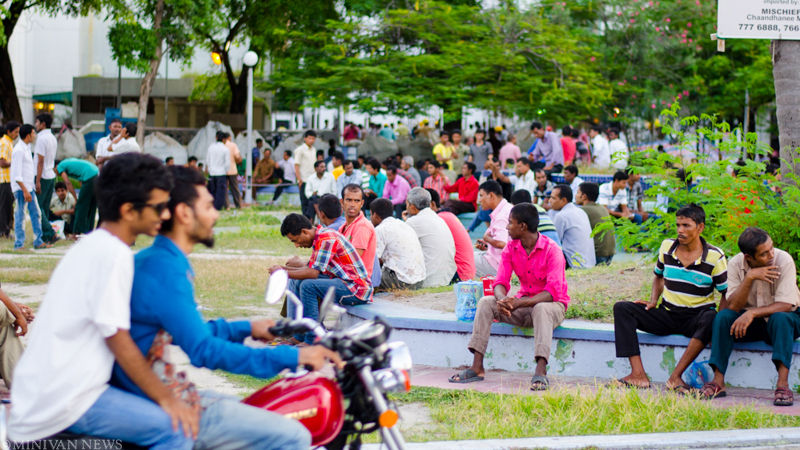Ihavandhoo council’s restrictions spark debate about treatment of migrant workers
The council ordered all foreign workers to register within five days, imposed a curfew of 10 pm, and prohibited public gatherings with the exception of Friday afternoons. Foreign workers were also banned from fishing, collecting wood, fronds or coconuts, and participating in events without invitation.

21 Jun 2017, 09:00
A curfew and other restrictions imposed Sunday by the Ihavandhoo council on the island’s expatriate community has sparked a debate about the treatment of migrant workers in the country.
The restrictions came in the wake of the murder of a Maldivian man in charge of the northern island’s ice plant by his Bangladeshi co-worker.
The council ordered all foreign workers to register within five days, imposed a curfew of 10 pm, and prohibited gathering in public spaces with the exception of Friday afternoons. Foreign workers were also banned from fishing, collecting wood, fronds or coconuts, and participating in events without invitation.
The Local Government Authority, the oversight body for municipal councils, has since quashed the restrictions on legal grounds.
Become a member
Get full access to our archive and personalise your experience.
Already a member?
Discussion
No comments yet. Be the first to share your thoughts!
No comments yet. Be the first to join the conversation!
Join the Conversation
Sign in to share your thoughts under an alias and take part in the discussion. Independent journalism thrives on open, respectful debate — your voice matters.




